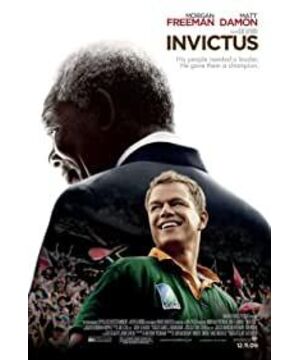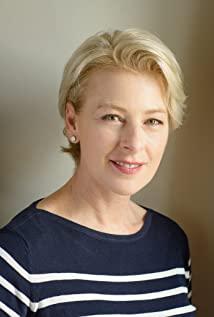Morgan Freeman (Morgan Freeman) has played God several times in various films, but even if he plays only some ordinary Ordinary people, his appearance (or just because of his deep and deep voice?) still has a bit of a god. In Clint Eastwood's new film "Invictus," Freeman plays Nelson Mandela, the South African anti-apartheid innovator who, I think, can Depicted as a half-human, half-godlike figure. The challenge for Freeman and Eastwood was to humanize Mandela while still showing his legendary legacy.
It is a noble and great story but full of conflicting elements. The film "Never Give in" has a simple and elegant charm, but it frequently reveals hero worship in the storytelling.
For its part, the thread of this Acura tale of humanity is largely true to historical fact. The screenplay was adapted from the play "Playing the Enemy" by John Carlin by white South African immigrant Anthony Peckham. The story follows Mandela, who became South Africa's president in 1994 after nearly three decades in prison, before he came up with a daring plan to unite a nation that was torn apart. Just a year away from the Rugby World Cup, Mandela is trying to get his countrymen to support South Africa's predominantly white rugby team, the Springboks.
For black South Africans, the Springboks are a typical symbol of long-term apartheid persecution, so Mandela's plan was once thought to be stillborn. While it's impossible to tell if it was his humanitarianism, Mandela's political instincts were unbiased on this matter. "Forgiveness saves souls" is Mandela's motto, coupled with his profound understanding of the power of sport to transcend racist barriers.
Mandela reaches out for racial reconciliation to Springboks captain Francois Pienaar, played by Matt Damon, a college athlete who doesn't seem too interested in politics , and inspired his team to go all the way, taking them to the World Cup final against New Zealand for the title. The final overtime between the two teams was played at Ellis Park in Johannesburg, and the intense overtime lasted about twenty minutes.
In "Never Give in," director Eastwood did not ignore the feud between blacks and whites that exists in this country. For example, there are several scenes at the beginning of the film about the fight between the black executive responsible for Mandela's personal security and the new white bodyguard, but Eastwood also doesn't fully focus on describing the hatred, The holy halo of human dignity dominates the atmosphere of the story. When the game reached its climax, we saw blacks and whites cheering in unison, indistinguishable from each other. Does this plot accurately restore the original appearance of history? Because even after the World Cup, the South African Rugby Confederation remained lukewarm about improving relations with black people.
The film takes its name from the 1875 poem of the same name written by the famous English poet William Ernest Henley. This great inspirational poem was also the spiritual pillar of Mandela while in prison. . At the end of the poem, it is written: "I am the master of my life, I am the commander of my soul." Director Eastwood extracted the essence of the poem with his own unique understanding, injecting profound emotional value into the film.
"Never Give in" feels slightly less human than Eastwood's previous films. Clearly, this is the ambition of a filmmaker desperate to win an Oscar. Of course, Eastwood has already won quite a few Oscars. Perhaps the film's exhilaration is a good explanation for Eastwood's growth as a director, especially as an actor, because Hollywood was in the midst of a biography of a great man in the 1960s when he began to make a big splash in the film industry. Stages of film and biblical epic film blowout. "Never Give in" is his tribute to Mandela, and it can also be seen as a tribute to Hollywood's classic films of the 1960s.
Freeman is a great actor, but his acting is not well represented in the film. Although Freeman has imitated the role in detail, it lacks a bit of the inner interpretation of the flesh and blood. The Mandela he plays is more of a piety. He may have struggled with divorce and disputes with his children, but Mandela's grief and remorse for his failures in life can only be used as props for his personal aura. Although Damon has only a few appearances in the film, he is, frankly, more impressive than Freeman in some ways, as the role he plays only needs to be his own. . However, the filmmakers have also tried to undercut Damon's role with supposed meaning, as in the film, when South African rugby captain Pinar visits Mandela's prison, he also thinks of Henry. That famous verse.
If it is to show awe of Nelson Mandela, the way the film is told can be said to be just right. But such a gesture of awe fits the mindset of a writer who writes idealized biographies, but probably not so for an artist. (James Pond/Compiled)
View more about Invictus reviews










